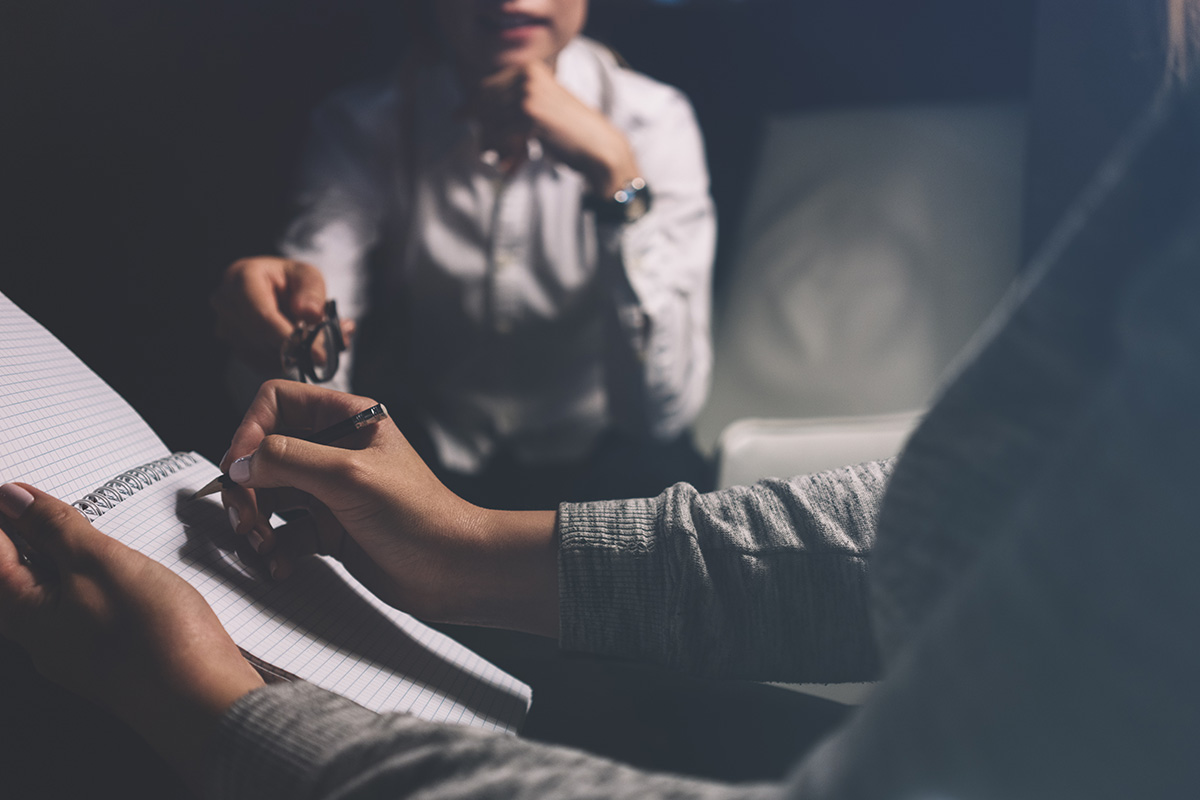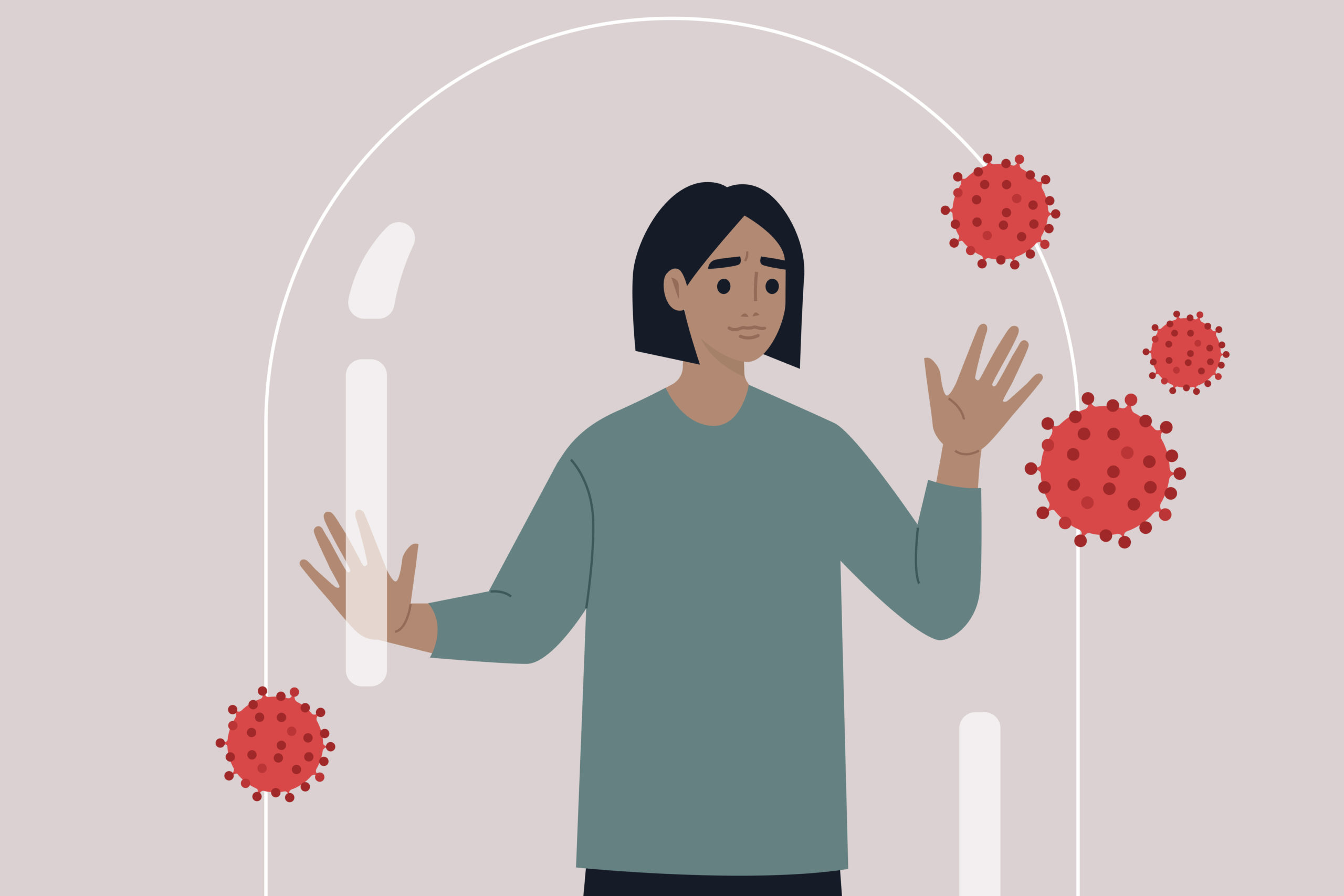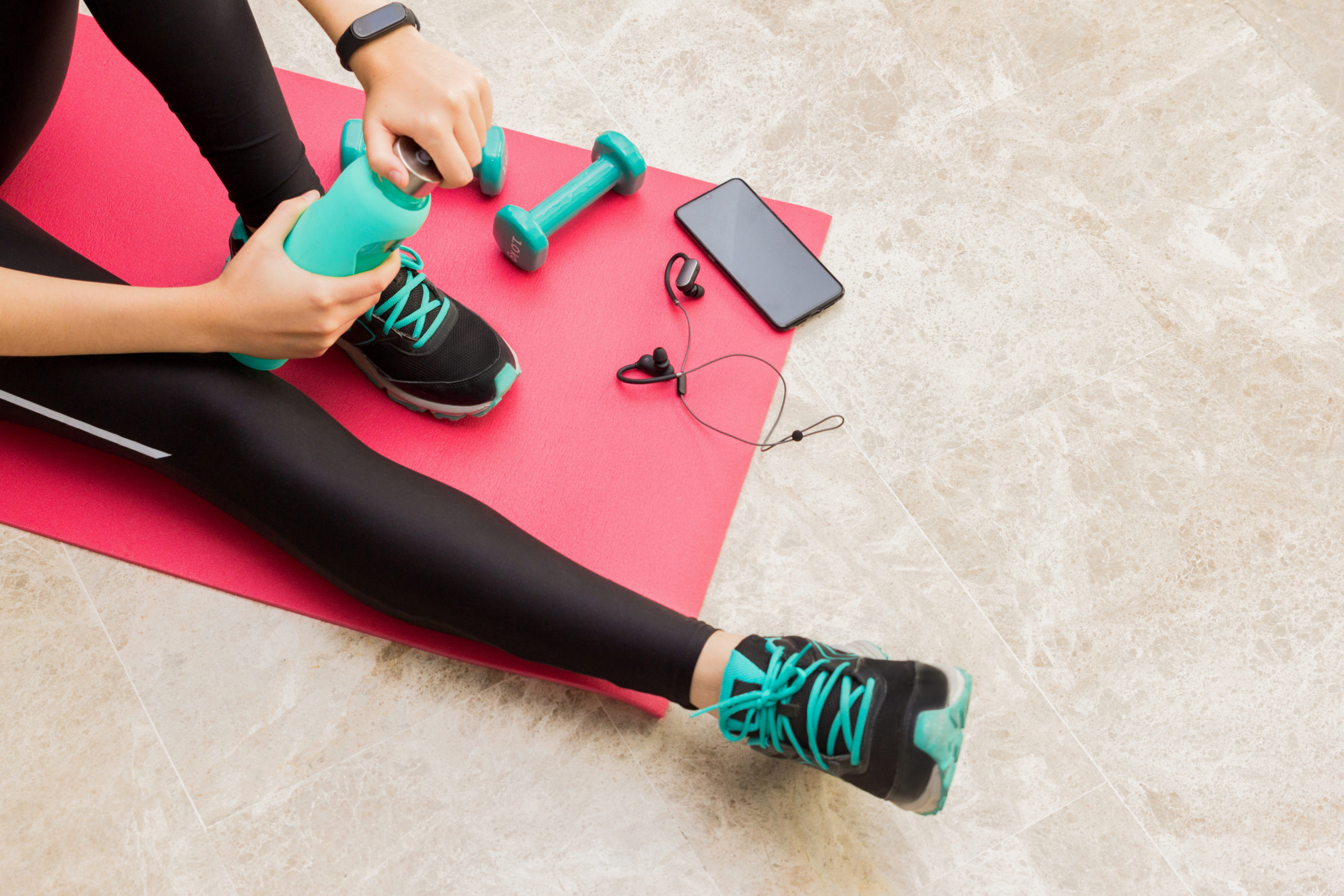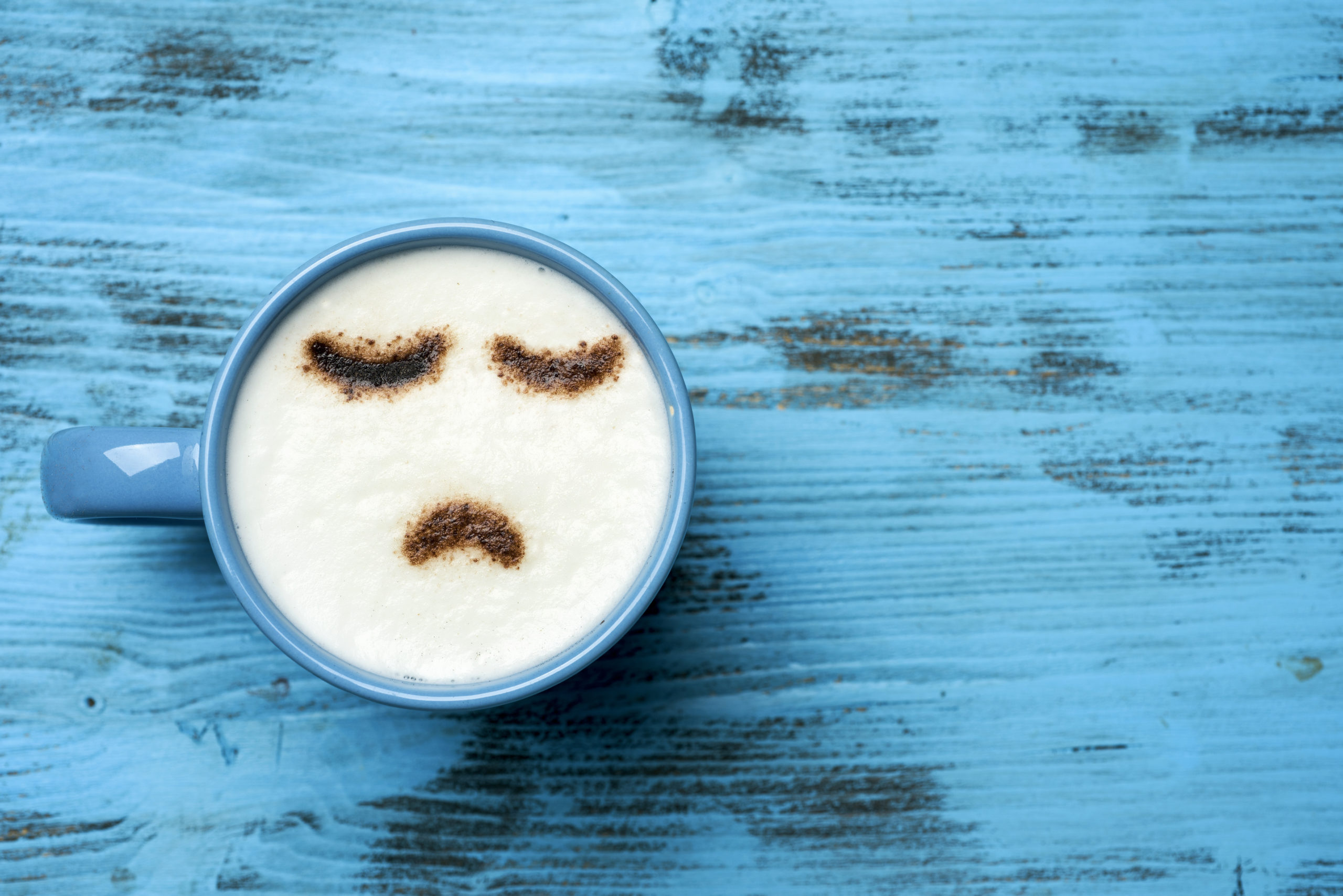by Melanie Coeshott | www.agelifebalance.com
Everyone gets stressed from time to time, and I’d say that’s probably symptomatic of modern life and the pressures we often feel under. Sometimes this stress acts a temporary obstacle, or can serve to positively energise and motivate us. Sometimes though, this stress manifests itself as anxiety.
Unfortunately, anxiety and general feelings of nervousness are some of the most common symptoms of menopause and can often be the most challenging to deal with. Hopefully, in this article, we can offer you some hope and some practical ways to deal with your menopausal anxiety.
We’ll look at different physical and psychological symptoms of anxiety, and then examine who might be susceptible to anxiety as well as some common causes or triggers. Finally, we’ll look at some treatments that may be prescribed, but also some things that we may want to try ourselves to ‘self-care’ and to mitigate our susceptibility to anxiety.
Let’s start by outlining some different types of anxiety.
Types of anxiety
Anxiety is a general term for several conditions that cause nervousness, fear, apprehension, and worrying. Anxiety can affect how we feel and how we behave, as well as showing via some physical symptoms. Mild anxiety can be unsettling, while severe anxiety can cripple our ability to cope with day-to-day living.
If someone is experiencing anxiety over a period of time, and their symptoms fit specific criteria, they may have an anxiety disorder. Anxiety disorders are different from periodic feelings of anxiety and are a group of clinically recognised mental illnesses. The distress caused by an anxiety disorder can keep you from carrying on with your life normally.
According to the NHS, anxiety disorders can be broken into different categories: panic disorders, social anxiety disorders, post-traumatic stress disorders (PTSD) and phobias – such as agoraphobia or claustrophobia. Menopausal anxiety is however not a distinct disorder as such but can feel no less real or distressing to women that experience it.
What are common symptoms?
Those suffering from anxiety can experience a number of physical and emotional symptoms. Listed here are a few common examples, and other sources such as the Mind website cover many more.
Physical symptoms
- A churning feeling in your stomach
- feeling light-headed or dizzy
- feeling restless or unable to sit still
- headaches, backache or other aches and pains
- faster breathing or a fast or irregular heartbeat
- sweating or hot flushes
- sleeping problems
- nausea
- panic attacks
Emotional symptoms
- feeling tense, nervous or unable to relax
- having a sense of dread, or fearing the worst
- feeling like other people can see you’re anxious and are looking at you
- feeling like you can’t stop worrying, or that bad things will happen if you stop worrying
- wanting lots of reassurance from other people
- worrying that you’re losing touch with reality
- rumination – thinking a lot about bad experiences, or thinking about a situation again and again
- worrying a lot about things that might happen in the future
- worrying about anxiety itself
Who could be affected by anxiety?
Anxiety could affect anyone – it is estimated that it affects 16% of the population at any point in time – with some people naturally more susceptible than others:
- Women are twice as likely to suffer than men (NHS)
- Peaks among those aged 40-60 years
- Anxiety could be hereditary, especially when this develops in the under 20s
- Those experiencing hormonal changes e.g. as related to menopause
What causes anxiety?
Unfortunately, as with many conditions, there is no single cause of anxiety. However, there are a number of contributory factors, which include:
- Current life situation
- Past or childhood experiences
- Drugs & medication
- Physical or mental health problems
- Hormonal changes, particularly associated with menopause
Typical prescriptions
If you’re experiencing some of the symptoms listed above, you’d probably be advised to visit your GP. Many doctors may prescribe medication to address the symptoms, but may also refer you for talking treatments.
The advantage of medication is that it could give you some immediate relief and enable you to sleep better, relax a little etc. There are some longer-term concerns with reliance on such medication, so these are probably best to be used sparingly and periodically to mitigate this risk.

Talking treatments
Talking treatments (or therapies) involve talking to a therapist about your thoughts and feelings. The purpose is to help you understand your feelings and behaviour better and, if you want, to change your behaviour or the way you think about things. You may talk about things which are troubling you, and it can be a time to explore your feelings.
A common talking treatment that is recommended to help in this way is known as Cognitive Based Therapy (CBT), but there are also number of different options which might be considered.
The main advantage of such treatments is that it could help to address some of the underlying causes of your anxiety. The disadvantage is that this could take time, and could feel overly intrusive to some who feel concerned about privacy.
Depending on availability and NHS waiting lists in your area, you may also look to charitable organisations (see below), or even to seek help privately to be seen quicker.
Self-help
The first step should be to help people to help themselves, where this is possible. There are a number of anxiety specific self-help solutions that can be investigated:
- CBT worksheets
- ReadingWell – Reading Well helps you to understand and manage your health and wellbeing using helpful reading.
- Natural remedies for anxiety
- Anxiety Control podcast
There are also some charitable organisations that could help:
- Anxiety UK – formed in 1970 by someone living with agoraphobia for those affected by anxiety disorders
- Mind – provides advice and support to empower anyone experiencing a mental health problem
- No Panic – helps people who suffer from Panic Attacks, Phobias, OCD and other related anxiety disorders
Self-care
In addition to dealing with existing anxiety, we may also want to take some proactive action to mitigate our general susceptibility to anxiety. The good thing is that there are lots of things that can proactively be done to manage this.
- Taking regular exercise
- Finding opportunities to talk and share with others
- Finding healthy distractions that are helpful
- Journaling or writing down worries to free the mind up
- Eating a balanced diet
- Drinking plenty of water
- Limiting consumption of alcohol and caffeine
- Resisting the urge to Google symptoms and believing everything you read
- Surrounding yourself with positive people
- Identifying some things to feel good about or grateful for
Many of these are easy to apply and have a wider impact than on anxiety alone. They could make us generally healthier and happier too – certainly worth giving them a try.
HRT
Anxiety is one of the most common symptoms of the menopause. In some cases, it can be completely debilitating, even to those who are not susceptible to feelings of anxiousness. If this is the case, HRT has been shown to ease anxiety and physiological symptoms associated with the transition.
If you feel your anxiety is due to the menopause, contact your GP to talk about HRT and treatment options.
Wrap-up
Anxiety could affect any of us at any time and may be triggered by a variety of things that are out of our control – a scary thought. We cannot choose whether we experience anxiety, but we can take some actions to try and mitigate the impact it may have on us. We can also look out for symptoms in friends and family, recognise the anxiety and help them to manage it too.





